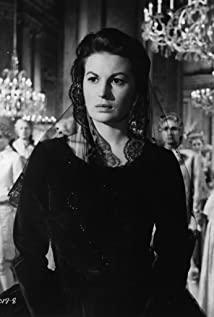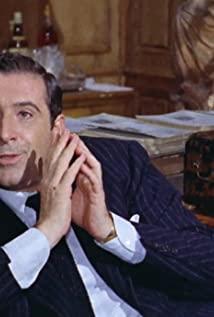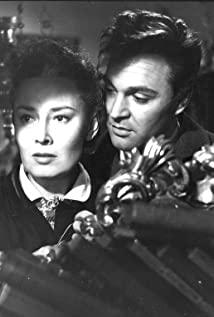Another border town——Tacio and Ashenbach,
after watching the original works and movies, they can’t help but have This thought: Does Tazio know about the existence of Ashenbach, his long-term attention to himself, and even nostalgia?
First of all-nonsense, people must know it. So freshman living behind him all day long, how can it take 20% to not notice for such a long time?
It is not ruled out that there will be very slow or only caring little P children, but Tazio is obviously not of this type. Ashenbach has repeatedly described him as a very intelligent child. According to the character of a great writer, he will not appreciate the stupid, but still regarded as the "highest symbol of spiritual beauty."
He knew his existence, knew his behavior, and several times consciously shortened his sense of distance from Ashenbach—a courtesy greeting in the restaurant; passing Ashenbach’s table on the beach instead of taking the previous route.
In this case, people have to make more speculations. Knowing Ashenbach's behavior, why Tazio did not make any statement, but maintained such a seemingly non-existent contact?
A girlfriend who is not a beautiful boy said, this is a narcissistic little sao bag (Khan, the original words). Khan, as a beautiful boy, especially a fan of Byrne, couldn't accept this statement. What's more, he is definitely not-I have seen nasty butt kids in middle school, teenagers are very shallow-minded, and feel that even a little bit of other people's likes will eagerly show off. come out. Will Ashenbach, who has always looked at others harshly, like such a frivolous child? ——Obviously, he and Tazio are not like this at all.
So, what exactly are Tazio's views and feelings about Ashenbach?
In my opinion, the following situation is more biased:
In our lives, from time to time we will encounter such people in buses, restaurants, roads, and parks-strangers who do not know at all, he has a certain curiosity about you, and he will observe you carefully, but you I can feel that this is a peaceful and harmless person, so I don't hate this look. Even, you have the same curiosity towards him/her, but when you try to approach him, he will immediately release a feeling to you: he is an introverted, shy, and very communicative person , So it's better not to have direct contact-just the feeling of this moment is so short that you may not know what it is. However, you can still leave and do your own thing under the gaze of the other party.
This kind of situation can happen a lot to nice-looking people.
When traveling, you will not encounter less, and when you live in a hotel with people who follow you, this is simply normal and natural.
That's probably how Takio felt about Ashenbach.
At breakfast in the early morning the second day of Ashenbach’s stay, he met Tazio again in the dining room-this time different from the perspective of a completely bystander the previous night, but the two had a positive contact.
Tazio's smile to Ashenbach is not only a courtesy for the younger generation to the elders, but also a tentative greeting. If Ashenbach accepts and responds, then a dialogue like "Hello, I am XXX, I am glad to meet you" will follow. But the well-known great writer never expected that the beautiful boy would release such a message to him-he must have thought it would only appear in a dream, so the kind of fear and unconfidence he showed not only made people laugh, but also passed on to him Beautiful boy’s message was: "I'm sorry, I think it's better for us to keep this distance. My dear boy."
So the sense of distance between the two is tacitly tacit.
Tazio spends most of his time doing his own business, basking in the sun, swimming, playing with his companions, acting like a baby to his mother and tutor-occasionally he will notice the gaze of the great writer, and he will look back at it as well. The response is like the one turning around when getting out of the elevator; when the childishness comes up, he will slow down in a prank manner and walk back and forth around the beach umbrella pillars-this is also a rare experience. In the eyes of strangers, you can still feel free. Everything stems from his perception that this strange elder will not cause harm to himself, and is more like a patron saint.
This feeling of dissociation is similar to Platonic emotional contact. Not only does it make people think that in Shen Congwen's "Border Town", Cui Cui's feelings for the old man and the old man are also similar: I think this person is good and I don't hate contact with him-but that's it. Of course, her feelings should be deeper and stronger. But it can also be explained in this way: in the growth period of boys and girls, the perception of the people they care about is always hazy, and the emotions are also unclear, and can even be ignored.
Takio was in this period after all, and Ashenbach was insignificant in his life after all. So at the last moment of Ashenbach's death, Tazio wouldn't find it strange. On the deserted beach, he would only think that this silent and weird elder would watch him silently again... He still put more energy on the dispute with Yashu. He would not have noticed the death of a great writer beside him, nor would he know that his ordinary teenage life would stay in literary history because of this writer.
We can also imagine how Tazio will feel after he understands all this?
After her grandfather passed away, Cui Cui learned the cause of the incident from the veteran, and figured out what she didn't understand. In the face of the more famous Ashenbach, someone will tell Tazio in the future: When you were on vacation in Venice that year, the world-famous writer fell in love with you and stayed in Venice where the disease was spreading for you. You die... At that time, how should he face it?
I think it depends on his age when he learned the news.
If he is still a teenager, he should be panicked and puzzled. This kind of surpassing the common feelings of the same sex, he cannot understand with his life experience. Maybe when you are dragged down by fame, there will be a little bit of resentment: I have nothing to do with you after all, why should I disturb my life?
When he enters adulthood, he will not care about such things. At that time, he had too many things to do: work, career, marriage, and childbirth. At most, he would be confused about the past time, and after a short period of time, he still has to devote himself to his life.
When he reaches the age of Ashenbach, he should be very indifferent to everything. Based on his experience at that time, when he searched for Ashenbach's shadow in the depths of his memory, he would be more considerate and understanding. With a smile...
a harmonious picture of separation-Tacio and his family, his mother, tutor, and sisters, when
watching Tacio’s family together, can’t help but feel a sense of subtlety: this population is not In a few families, mothers and sons are the most beautiful and eye-catching, while a few daughters are as dull as the tutors, as if they are a foil.
There are only a few introductions to the Tazio family in the article, and we cannot know the details of the family. His father never appeared in the text. I only know that this is a good family, with considerable wealth, social status, and considerable education and heritage. These can be seen from the center of this family-the beautiful and slender mother. The dress is gorgeous and natural, and the manner is elegant with rigor. In the movie, this feature is brought into full play-all the scenes of this mother appear in a neat and elegant dress no matter what the occasion. Including the slightly raised attitude, neat gloves, the veil that flicks on the face when reading at the beach, as if the characters born from Mu Xia's writings. You can completely guess that this is a woman with a perfectionist plot who grew up in an environment where both material and spiritual conditions are very rich.
But when I look at her daughters again, I can't help but feel a strong contrast-whether the eldest daughter has grown into a young girl or the younger sister, they are all dressed up as nuns. The staid hair, the dimly colored dress, the restrained and silent demeanor-even the most beautiful appearance will be concealed by these elements.
On the other hand, Tacio and his sisters are in sharp contrast, all kinds of sailor suits, pure white, Hainanese, decorated with red bows, unscrupulously set off his youthful years.
He also behaves more freely. He can naturally lean on the sofa and listen to the piano, he can joke with the tutor, and he can act coquettishly with his mother and get a response. Compared with his sisters, he has too many privileges. His never suppressed nature can be released unfettered-this is also the reason why Ashenbach is attracted enough.
The article has a clear description of all this. Tazio is obviously the only child doted by his mother, he is the treasure in the palm of his mother and the center of the whole family. Looking at the beach, he was the first to be taken care of by the tutor, and he was the one who received the love from his mother, including his sisters. In an unobvious scene, Taccio ran from the beach to the location of his family, he One of his sisters gave him the recliner, but she stood next to her sister—all of which behaved very naturally and as it should be.
Everything stems from the authority of this family-the mother. Tazio is the only son in the family, and he is so beautiful and intelligent-anyone with such a son will inevitably prefer him, and can't wait to give him the best things. She also understands her attitude towards her daughters. There are so many daughters and they are all at a growing age. It doesn't hurt to dress plainly and plainly. So as not to have extra thoughts---puppy love, develop extravagant habits, and bring troubles to the family. They all want to marry, and learning to be thrifty early will also bring benefits to future housekeeping. Up to now, many parents have been cultivating their daughters in this way. I once had a teacher who insisted that it is enough for girls to wear school uniforms. They have a natural youth advantage and do not need to be dressed up to cover them up. For those who love beauty or something, there is no problem waiting for them to grow up-I want to have the same views as this mother.
In fact, you can think of it this way. The mother's way of treating her daughters is so natural. It is very likely that her growth period is also spent in this way. Although she is extremely gorgeous now, she can't escape the formal and indifferent distance in her words and behavior. feel. Even facing her favorite Tazio. When she appeared on the stage, she asked Tazio to kiss her hand; on the beach, Tazio rolled over with the sand and ran over. She only tidyed his hair symbolically and left the cleaning to the tutor to do. Whether in novels or movies, there has never been a scene where she hugs or kisses Tazio-this is true for her favorite son, let alone treat other people. In this way, the decoration of her appearance is more of a kind of compensation for her lack of beauty in her teenage years, and she let her daughters dress simple, not only out of mind-set, but also more or less as a woman to young girls. Jealousy and defensiveness-even if she thinks that everything she has done is taken for granted.
Where are the sisters of Tazio? What do you think about this differential treatment?
Silent, silent acceptance. At least the oldest sister and the youngest sister have always performed this way in the movie. There is no injustice, no thought of getting angry, resisting, completely agreeing with the mother's thinking, and thinking all this is natural. Only the second daughter named "Yiwanke" (or Visconti's original name) had a slight protest: "Mother, Tazio won't give me shells." "Mother, the shells I picked up are also very beautiful." As for her reaction, her mother was perfunctory and her brother didn't care. So she did not insist, and was as silent as the other sisters-but, who knows the future situation? Who knows whether this inequality will affect her future psychology? The mother will eventually die, she will eventually marry independently and have her own family. At that time, how would she face Tazio? It is really unknown.
What is Tazio's attitude towards his family?
He is undoubtedly in love with his mother. Only when their mother and child are together, there will be an atmosphere different from others. Beautiful, intimacy, and grace; he undoubtedly loves his sisters. Although he is a boy at this age, it is inevitable that he will not care about the people who get along with him every day, let alone notice the subtle feelings of the sisters. He understands that he and his sisters are treated differently, but the scenes he spends with them are natural. I believe that after he grows up, he will understand the sacrifices his sisters have made for him.
In short, this is a normal and wonderful family-if the picture is divided, the mother and Tazio, the tutor and the three daughters, no one would think that these are two different families. This is more of a symbol, mother and Tazio, symbolizing the wonderful and flying side of life; tutors and sisters think that this life is a steady and steady direction. But only by overlapping the pictures and letting them set off each other can we get the best harmony-the blood connection is always the closest.
View more about Death in Venice reviews











